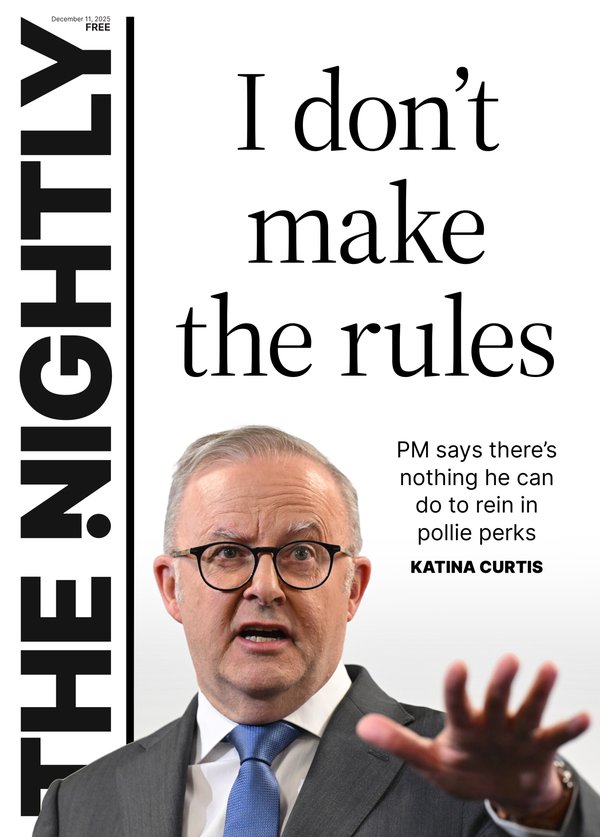New anti-money-laundering rules loom: What it means for buyers and sellers

The government is cracking down on illicit money flows. Right now, essential players like real estate agents and lawyers are not fully covered by anti-money laundering (AML) laws.
This will mean a major compliance shake-up in Australia's real estate market with new AML rules under "Tranche 2" of the Anti-Money Laundering and Counter-Terrorism Financing (AML/CTF) legislation coming into effect.
So, if you're planning to buy or sell a home in the next few years, be prepared for an extra step in the process.
Sign up to The Nightly's newsletters.
Get the first look at the digital newspaper, curated daily stories and breaking headlines delivered to your inbox.
By continuing you agree to our Terms and Privacy Policy.For everyday homeowners, this means that when you sell or buy property, you'll be asked to verify your identity, and your real estate agent will need to record the purpose of your relationship with them.
In cases of more complex ownership arrangements, additional information may also be requested.
Richard Manthel, CEO of AMLHUB (Anti-Money Laundering Hub), a compliance specialist organisation that has been guiding New Zealand's real estate sector since 2012, said this process is becoming a standard part of real estate transactions.
"Vendors and buyers need to be aware that this additional step is coming," he said.
The changes are designed to make the property market fairer and more transparent.
Money laundering costs the Australian economy an estimated $60.1 billion each year, and Tranche 2 aims to make it harder for criminals, both domestic and international, to use real estate as a way to legitimise illicit funds.
Manthel explained: "Real estate is a good way to transfer funds and provide an air of legitimacy. This is a global problem, and the Australian market has been used to launder funds for many years. The money launderers are both domestic and foreign and from all sectors of society."
He added that the legislation is more than just paperwork for agents.
"The purpose of the regime is to make it more difficult for criminals to use Australian property to legitimise their ill-gotten gains. Agents will now be required to spot unusual behaviour and report all suspicious activity to the authorities."
The benefits for buyers and sellers could be significant over time. By reducing the influence of money laundering in property transactions, experts say Tranche 2 could help curb artificial price spikes and ensure a fairer playing field for genuine buyers and sellers.
Manthel drew on New Zealand's experience, where AML laws introduced in 2019 have reshaped the market.
"In New Zealand, the biggest change has been agents' growing ability to spot unusual behaviour and complex ownership structures. AML processes have now become business as usual, and vendors are very aware of their obligations."
Real estate agents also have a strong incentive to get compliant. From March 31, 2026, all agencies must enrol with AUSTRAC, and by July 1, 2026, they must fully comply with the legislation. Missing these deadlines could result in substantial penalties.
To assist, Real Estate Industry Partners (REIP), which represents more than 40% of Australian real estate brands, has partnered with AMLHUB for their compliance expertise in the industry.
Together, they aim to provide practical tools and guidance that reduce the administrative burden on agents while keeping the market clean.
Sadhana Smiles, CEO of REIP, said the sector has been flagged by the Federal Government as a high-risk target for money laundering.

"Buyers can at times be disadvantaged in a market affected by money laundering, with the potential for inflated prices and increased land banking," she said.
"We know real estate agents want to protect their clients as well as their businesses, which is why we're pleased to partner with AMLHUB as a compliance partner to support them through the upcoming legislation changes."
For homeowners, the changes will initially mean marginally more paperwork, but the long-term benefits could be significant.

e.
Originally published as New anti-money-laundering rules loom: What it means for buyers and sellers
